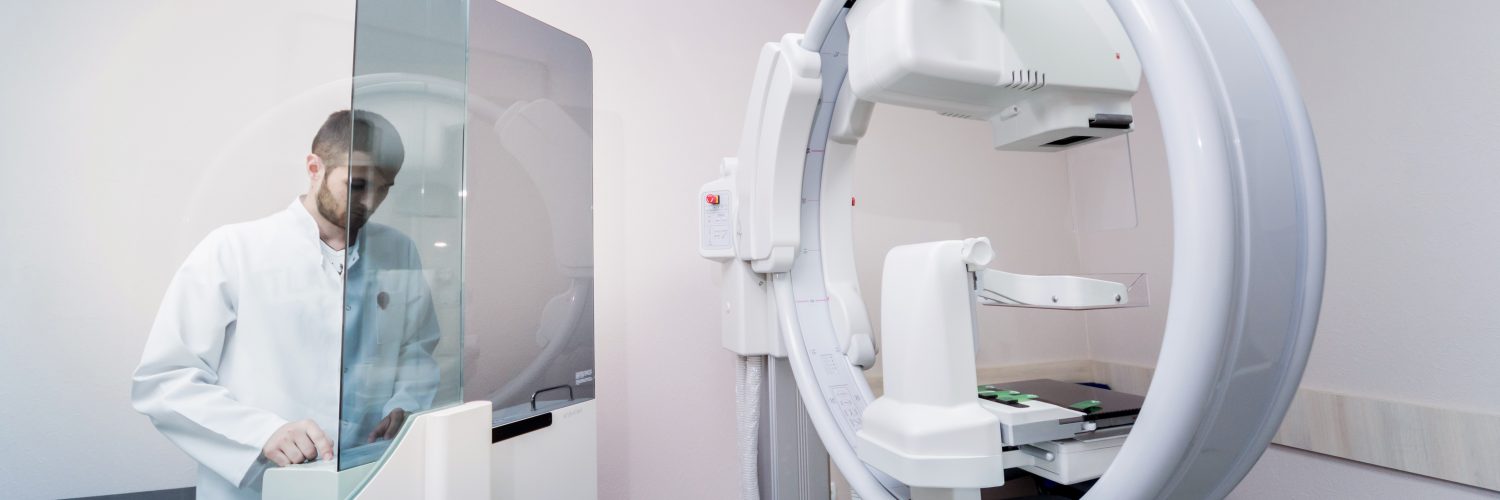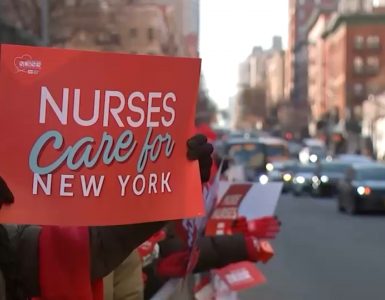Vaetchanan 5780
“But you shall greatly beware for your souls.” (Devarim 4:15)
In our essay for Parshas Va’eschanan last year[1], we focused on the Mitzva found in the Posuk above – “v’Nishmartem M’od l’Nafshoseichem” – and discussed the fascinating derivation of the Torah obligation to guard one’s health from this Posuk. This year, we will focus on a practical application of this Mitzva.
One of the most quickly growing fields in the medical arena is preventive medicine. Aside from a plethora of initiatives that are intended to accustom the public to a healthy lifestyle, including childhood vaccinations, we are becoming increasingly familiar with a number of scientific and technological developments that allow early diagnosis of diseases.
Predictive or presymptomatic diagnosis, whether for the purposes of assessing the risk of diseases or for early intervention, can play a critically important role in a patient’s chances of recovery or of avoiding disease entirely. Screening tests, such as mammograms or colonoscopies, tests that assess or predict the risk of developing Type 2 diabetes, or genetic testing that can identify a predisposition to an ever-growing wide range of diseases, are all essential diagnostic tools. Does the Mitzva of “v’Nishmartem” obligate a person to undergo such testing or to follow the precepts of preventive medication in general?
Several arguments made by those who believe that there is no obligation to undergo screening tests. Firstly, they cite the Pasuk in Tehilim (116:6) of “Shomer Pesa’im Hashem” – “Hashem protects the simple”. The Gemara cites this Pasuk on a number of occasions as justification for overlooking hazardous activities[2] claiming that Hashem protects those who ignore any danger that is inherent in their behavior. This would seem to suggest that one may blithely conduct his affairs without considering the possible risks. Therefore, a person should similarly be able to refrain from undergoing diagnostic tests, trusting that Hashem will save him from any possible harm.
But this is an entirely incorrect conclusion. The Sefer Shemiras Shabbos Kehilchasa (32:1, footnote 2) rules that one may only invoke Shomer Pesa’im Hashem in cases where something is a common and widespread practice and people are not concerned about the danger or risks of the activity, but not when something is widely considered to be dangerous. The concept of Shomer Pesa’im Hashem does not apply to a known danger that a person chooses to ignore.
Moreover, the Tzofnas Pa’aneiach (Bereishis, Introduction p49) holds that Shomer Pesa’im Hashem only applies to danger that is a product of the natural processes of the world. For example, although childbirth is dangerous (indeed a woman is considered a Cholah Sheyesh Bo Sakanah for a number of days following the birth), it is permitted to become pregnant and bear children because of Shomer Pesa’im Hashem. Dangers that are not inherent in the world’s natural order may not be ignored.
R’ Elchonon Wasserman HY”D (Kovetz Shiurim, Kesubos 136) agrees with the Tzofnas Pa’aneiach and further explains that when there is an element of danger in normal day-to-day life, it is considered “unavoidable”, as a person cannot be expected to refrain from basic activities of daily living. However, if avoiding danger will not encroach on a person’s regular activities, a person is obligated to take steps to protect themselves. Therefore, a person would be obligated to make efforts to avoid dangerous diseases that are certainly not a part of “normal” life, particularly when the diagnostic tests barely inconvenience a person at all.
Finally, the Achiezer (1, E.H. 23) rules that Shomer Pesa’im Hashem only applies when the danger is remote and unlikely, not where it is common.
A second argument made by those who refrain from early testing for diseases is based on Rashi’s comment to the Pasuk “Tamim Tihye Im Hashem Elokecha” – “You shall be wholehearted with Hashem your G-d” (Devarim 18:13). Rashi explains:
Walk with him with wholeheartedness. Look ahead to him and do not delve into the future, but rather whatever comes upon you accept with wholeheartedness and then you will be with Him and of His portion.
Rashi makes clear that the Mitzva of Tamim Tihye forbids a person from “delving into the future”. Therefore, there are some who maintain that a person should not perform presymptomatic diagnostic testing as it will reveal what is awaiting him in the future. Rather, he should simply trust in Hashem.
This argument is also erroneous and illogical. Regarding business and financial matters, people strive mightily to predict the future and to garner every possible fact in order to forecast later developments and prevent possible losses. It is only regarding their health that they show less concern and therefore preach a message of trust in Hashem and “Tamim Tihye”!
In fact, the Pasuk of “Tamim Tihye Im Hashem Elokecha” has a different meaning entirely. The directive to refrain from “delving into the future” refers to consultations with astrologers, psychics and fortunetellers. The Torah instructs a person to refrain from placing his trust in those who practice these forbidden activities and instead trust in Hashem (or perhaps to turn to a Navi or the Urim v’Tumim where necessary). The Ramban (ibid.) writes this explicitly[3]:
The explanation of “You shall be wholehearted with Hashem your G-d” is that we shall wholly dedicate our hearts to Him and believe that He alone does everything. And that He is the one who knows the truth of all future events. And from Him alone we should inquire about the future through his prophets or through his devout ones. We should not inquire of stargazers or their like, nor should we trust that their words will certainly be fulfilled. Rather, if we hear something from them, we should say, “Everything is in the hands of Heaven” for He is the God of all powers, supreme over everything, all-powerful. He alters the arrangements of the stars and the constellations as He wishes and nullifies the signs of the stargazers and makes fools of diviners. And we should believe that everything that occurs is commensurate with the degree to which a person has come close to Hashem through his service. Therefore, after the prohibition against inquiring about future events from a diviner or one who consults the dead on behalf of the living, the Torah says that you shall be “wholehearted with Hashem your G-d” in these matters and have no fear of a fortune teller. Rather, one shall inquire of Hashem’s prophets and hearken to Him.
We learn two important things from this. One may not enquire about the future from necromancers or diviners as the Jewish people are not bound by constellations or any other higher powers to which these people attach themselves. Secondly, a Jewish person must believe with certainty that the Jewish people are ruled only by Hashem Himself.
It is obvious that medical diagnoses are not included in the prohibition of delving into the future as they are a vital tool for guarding one’s life and staying away from danger. Doing so is more comparable to checking the road ahead for pits, snakes, or scorpions which is certainly not a violation of “Tamim Tihye Im Hashem Elokecha”!
There are a number of other arguments made in support of refraining from undergoing medical tests but it should be clear to any straight-thinking individual that a person ought to heed the instructions of the medical community and undergo these tests as recommended. The Rambam in Hilchos Deos (4:1) famously rules:
Given that a healthy and complete body is of the ways of God – for it is impossible to understand or know anything from the knowledge of Hashem when he is sick – therefore a person should distance himself from things that destroy his body and accustom himself to things that sustain and heal.
HaGaon Rav Asher Weiss Shlit”a also drew the same conclusion. He maintained that while early testing for diseases cannot be considered an outright obligation, it is certainly “a correct and fitting Hishtadlus for the health of one’s body and soul”. This was also the ruling cited in a Psak Din of many important Dayanim in Eretz Yisrael in Teves 5778:
It has been made clear to us by physicians that there is a 6% chance that from the age of fifty and upwards and person may develop colon cancer and that this disease can be prevented in 90% of cases if it is caught at any early stage. The physicians therefore recommend that a person undergo a colonoscopy once every five years [from the age of 50]. We recommend heeding the physicians’ advice. And may it be the will of our Father in Heaven that all of Israel are saved from any blight or disease, and the verse will be fulfilled that states, “Any disease that I brought upon Egypt I shall not bring upon you, for I am Hashem your healer.”
[1]All of our previous essays are available online at https://www.medicalhalacha.org/torah-archive.
[2]See Shabbos 129b regarding bloodletting on Erev Shabbos and Avoda Zara (30b) regarding consuming figs and grapes at night (and disregarding the potential for “Giluy” – unguarded, uncovered food from which a snake may have eaten and left its venom).
[3]See also the Ramban’s commentary to Bereishis (17:1).












Add comment